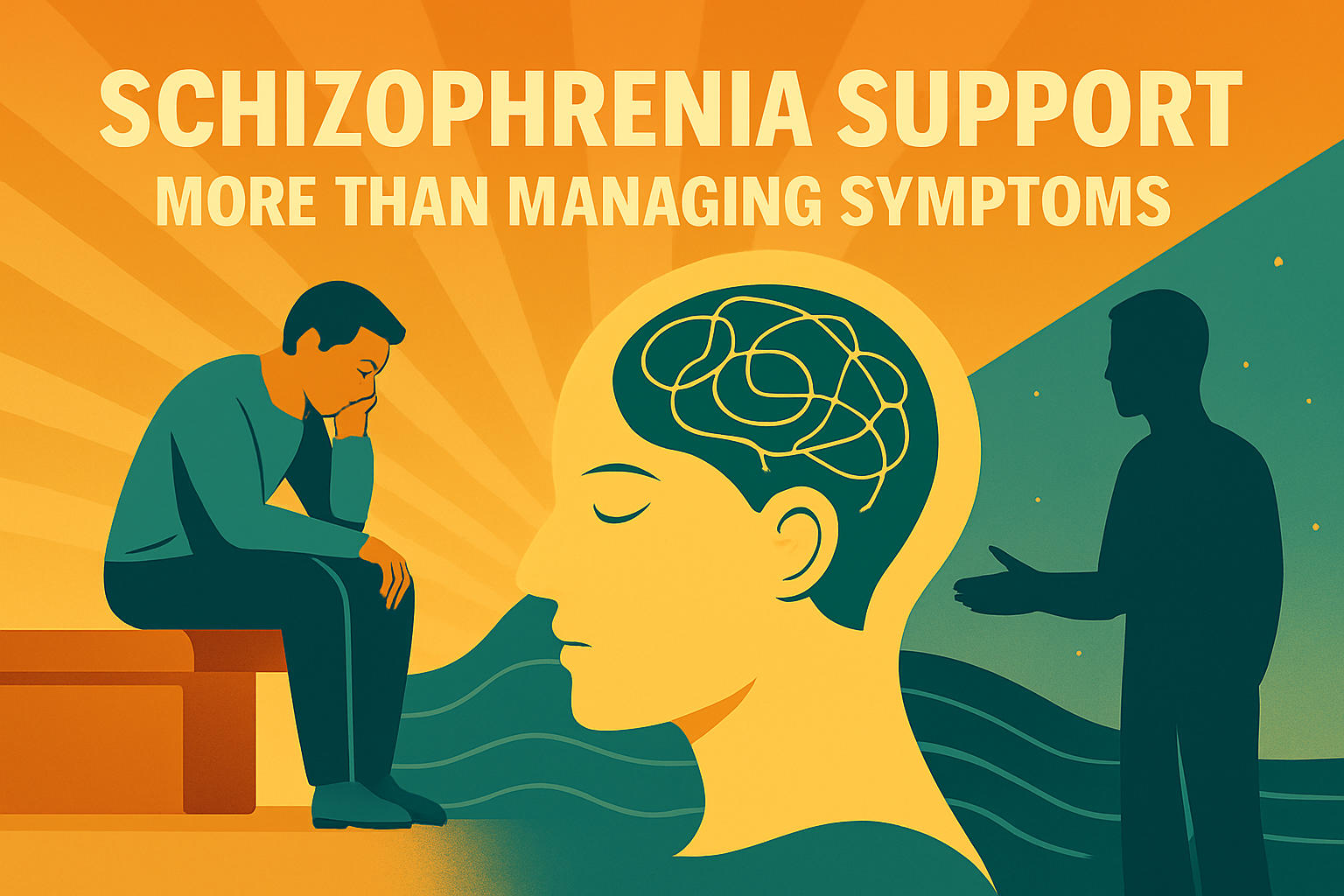Schizophrenia Support — More Than Managing Symptoms
A Human Approach to a Complex Experience
If you or someone you love is living with a diagnosis of schizophrenia, you’ve probably already encountered the standard treatment model: medication, monitoring, and maybe a bit of advice along the way. And while medication can be important — especially when symptoms feel overwhelming — it’s rarely enough on its own.
People heal in relationship. We need places where we’re not just stabilised, but understood. In our work together, we start with that premise: that you are more than a diagnosis, and that long-term wellbeing requires more than just managing symptoms.
Why Therapy Matters
For a long time, it was assumed that therapy didn’t help people with schizophrenia. But that’s changing. Recent research shows that combining medication with psychotherapy, social support, and family involvement leads to far better outcomes than medication alone. In fact, one major study found that people who received this kind of integrated care needed less medication and had better quality of life than those receiving only medication and basic support (Time Magazine article on schizophrenia and talk therapy).
Therapy doesn’t replace medication — but it does something different. It helps you make sense of what’s happening. It helps rebuild trust — both in yourself and in others. And over time, it supports a deeper kind of recovery: one that includes connection, dignity, and meaning.
What Therapy Can Look Like
Some days, therapy might be a place to slow down and find your footing. Other days, it might be about exploring relationships, expressing something that hasn’t had space before, or gently challenging the inner voices that make life harder.
There’s no fixed agenda here. We move at your pace, with your experience at the centre. If it feels helpful, we might explore the emotional roots of disconnection or confusion. If trust is hard, we stay with that. This is long-term work — but that’s exactly what makes it sustainable.
Hope Over the Long Haul
While schizophrenia is often described as a lifelong condition, that doesn’t mean life is over. In fact, therapy can play a powerful role in improving long-term outcomes — especially when it focuses on the whole person, not just the symptoms.
Studies have shown that approaches like Counselling and Psychotherapy — which support people to understand their experiences and build new stories about themselves — can lead to real, lasting change, even years after therapy ends.
You Are Not a Problem to Be Solved
In this space, you’re not a set of symptoms or a case to be managed. You’re a person, with a story that matters. Our work won’t be about getting you to “act normal” — it will be about helping you reconnect to what feels real, safe, and alive in you.
If you’re looking for support that meets you with respect, patience, and presence — I’d be honoured to walk alongside you.

